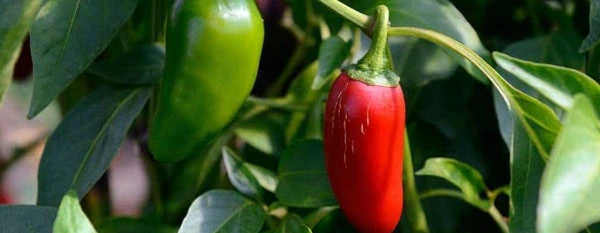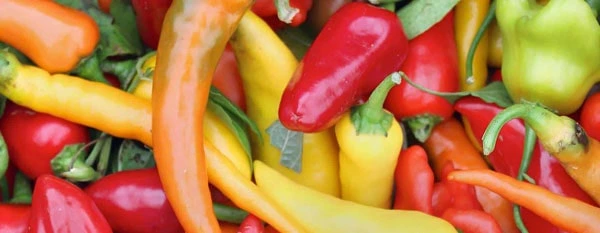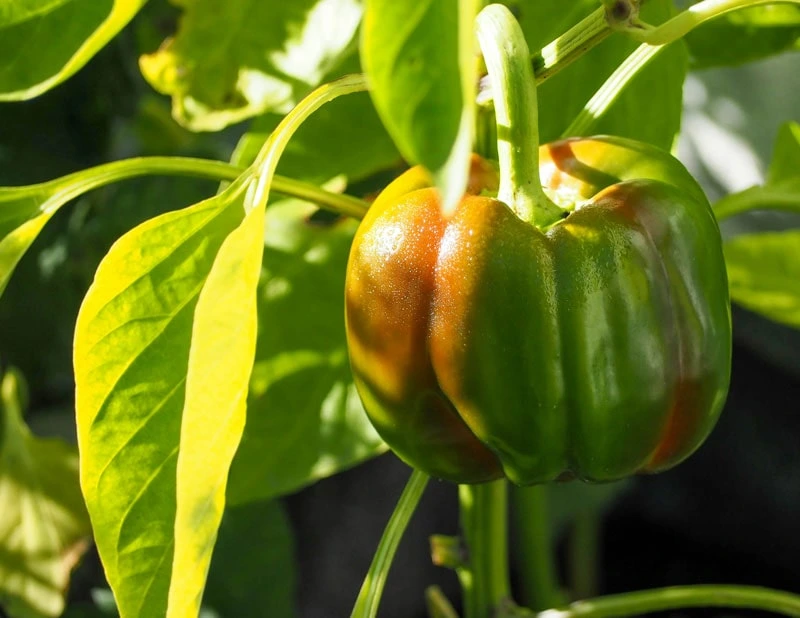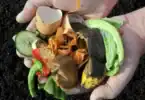Epsom salt has been a popular household item for many years due to its numerous benefits. One of its many uses is for gardening, including using Epsom salt for pepper plants. Epsom salt is a natural and affordable way to provide some of the necessary nutrients for plants to grow and thrive.
Pepper plants require a variety of nutrients to produce healthy and robust fruits. Epsom salt, which is made up of magnesium and sulfur, can help provide these two essential nutrients to plants.
Magnesium is a crucial component in chlorophyll production, which is vital for photosynthesis. Sulfur, on the other hand, aids in the absorption of nutrients, making it easier for plants to take in the necessary minerals. Using Epsom salt for pepper plants can help gardeners ensure that their plants receive these nutrients that they need to produce bigger and better peppers.
What is Epsom Salt?
Epsom salt is a chemical compound that contains magnesium, sulfur, and oxygen. Its scientific name is magnesium sulfate, and it is commonly used in gardening as a soil amendment. The compound is named after the town of Epsom in England, where it was first discovered as a naturally occurring compound.
Magnesium sulfate is a naturally occurring salt, and it is commonly found in mineral deposits and salt flats. It is also produced synthetically for use in various industries, including agriculture, medicine, and cosmetics.
Epsom salt for pepper plants is particularly beneficial, as they can suffer from magnesium deficiency if your garden soil is not supplying enough of this crucial nutrient.

How Epsom Salt Helps Pepper Plants
Epsom salt is a popular natural remedy that is often used in gardening to promote plant growth and yield. When used correctly, it can help pepper plants produce bigger and better fruits. Here are some of the ways Epsom salt for pepper plants is helpful:
Magnesium for Growth and Yield
Epsom salt is a rich source of magnesium, an essential mineral that plays a vital role in plant growth and development. Magnesium is a key component of chlorophyll, the pigment that gives plants their green color and is necessary for photosynthesis. Without enough magnesium, plants cannot produce chlorophyll, and their growth and yield can suffer.
Sulfur for Fruit Production
Epsom salt is also a good source of sulfur, another essential mineral that is important for plant growth and fruit production. Sulfur is necessary for the formation of proteins, enzymes, and vitamins, and is also involved in the production of chlorophyll.
When pepper plants have enough sulfur, they can produce more and better-quality fruits. Sulfur can also help improve the flavor and aroma of the fruits. Adding Epsom salt to the soil can provide pepper plants with the sulfur they need to produce more and better fruits.
Other Factors for Healthy Peppers
Pepper plants generally prefer a slightly acidic soil with a pH between 6.0 and 6.8. Epsom salt can be used in conjunction with compost and targeted fertilizers to provide a complete mix of nutrients for the plants. Be sure to read the label on your preferred fertilizer – some come with magnesium and sulfur already added to the mix. In this case, you should not use Epsom Salts. More magnesium is not beneficial in this situation.
Additionally, pepper plants require regular watering and adequate sunlight to grow and produce healthy fruits.
Is My Soil Magnesium Deficient?
Before treating your plants with any supplement or fertilizer, it is good to know if you even need to amend the soil. The most definitive way to do this is a soil test. A soil test will determine the soil pH and various other nutrient levels.
An ad hoc method, is to observe your pepper plants – signs of magnesium deficiency can include:
- Yellowing leaves – and in more extreme cases brown or reddish spots
- Stunted growth habit
- Pepper plant sets very few blossoms
- Peppers that are produced are not robust
If you really are not wanting to go through the process of soil testing, I would at least recommend that you try adding Epsom salt with only one of your pepper plants and compare the results with an untreated plant. In this way, you will gain insight about what works for you that you can implement in next year’s garden.

How to Use Epsom Salt for Pepper Plants
Here are three ways to use Epsom salt for pepper plants.
Soil Additive
Epsom salt can be used as a soil additive for pepper plants. This simple method can give your pepper plants a good start on the growing season.
To use Epsom salt as a soil additive, mix 1 tablespoon of Epsom salt into the soil in each planting hole before planting the pepper plant.
If you are potting your pepper plants in containers for your patio, mix 1 tablespoon of Epsom salt into the potting soil before inserting the pepper plant in each container.
Side Dressing
Another way to use Epsom salt for pepper plants is as a side dressing. This involves adding Epsom salt to the soil around the base of the pepper plant.
To do this, sprinkle 1 tablespoon of Epsom salt around the base of the pepper plant. Gently work the Epsom salt into the soil, being careful not to damage the roots. Repeat this process every four weeks throughout the growing season.
If you are worried about damaging roots, an alternate method is to mix 1 tablespoon of Epsom Salt into one gallon of water and it should easily dissolve. Then use the mixture to water your pepper plant, taking care to pour it on the soil and not the leaves.
Foliar Spray
Some gardeners recommend using a Foliar Spray, which is simply mixing the Epsom Salt into water, then spraying it on the leaves and stems of the plant. Other gardeners say that this can damage pepper plant leaves and recommend against it. I suspect that the difference in methods stems from the variety of different species of plants that are considered ‘peppers’ and some just don’t respond well to this method.
Given how easy it is to simply use one of the methods above, I just avoid spraying anything on my pepper plant leaves.
Precautions When Using Epsom Salt for Pepper Plants
While Epsom salt is a great way to boost the growth of your pepper plants, it is important to use it with caution. Here are a few precautions to keep in mind when using Epsom salt for pepper plants:
Don’t Over-Apply
While Epsom salt can be beneficial for pepper plants, too much of it can be harmful, not only for the peppers, but for other nearby plants. Over-applying Epsom salt can lead to a buildup of magnesium in the soil, which can prevent your plants from absorbing other essential nutrients such as Calcium.
To avoid this, it is important to follow the recommended dosage and only apply Epsom salt to your pepper plants as needed.
Avoid Using Epsom Salt on Foliage
Epsom salt should be applied directly to the soil around your pepper plants, not on the foliage. Applying Epsom salt to the leaves of your pepper plants can cause leaf burn and other damage.
Make sure to apply Epsom salt directly to the soil around your pepper plants.
Use High-Quality Epsom Salt
To ensure that you are getting the best results for your pepper plants, it is important to use high-quality, hydrated magnesium sulfate. Look for Epsom salt that is labeled for gardening use and has a high purity level.
While Epsom Salt should be Epsom Salt (and you should be able to pick any of them), this is a Epsom Salt for plant nutrition, so this package has lots of useful details on the back of the package about application rates and methods. It also describes how you can use it for a foot soak after you get done taking care of your garden. This is a 7 pound bag.
Keep an Eye Out for Pests and Diseases
While Epsom salt can help boost the growth of your pepper plants, it is not a cure-all for pests and diseases. Keep an eye out for common pepper plant pests like slugs and aphids, and be sure to take appropriate measures to control them.
If your pepper plants are suffering from diseases like blossom end rot, gardeners do not consider Epsom salt to be the solution to this disease.
Epsom Salt on Pepper Seeds?
While Epsom salt can be beneficial for pepper plants, it is important to use it with caution when starting seeds. Applying Epsom salt directly to pepper seeds can cause them to dry out and become damaged. Instead, it is best to apply Epsom salt to the soil around your pepper seedlings when you are transplanting or thinning. If you are starting your seeds in a planting mix, it is unlikely that you need to add Epsom Salt at this point – check the label on the nutrients supplied by the planting mix.
By keeping these precautions in mind, you can safely and effectively use Epsom salt to boost the growth of your pepper plants.
Are There Any Risks When Using Epsom Salt on Pepper Plants
When it comes to using Epsom salt on pepper plants, it’s crucial to be aware of any potential risks or side effects that may arise. While Epsom salt can offer numerous benefits, improper usage or excessive application could have adverse effects on your pepper plants’ health.
- Over Use: Epsom salt contains magnesium and sulfur, which are essential nutrients for many plants. However, excessive amounts of these nutrients can lead to imbalances in the soil, potentially causing harm to pepper plants and the plants nearby. It’s vital to follow the recommended dosage guidelines and avoid over-application to prevent nutrient toxicity.
- Salt Build-up in Soil: Using Epsom salt excessively or too frequently might result in magnesium sulfate buildup in the soil. This buildup can disrupt the water balance within the plants, leading to dehydration or root damage. To prevent this, it’s advisable to monitor the salt levels in the soil and flush it periodically with ample water to maintain a healthy growing environment.
- Not a Fix-All: Another factor to consider is the specific needs of your pepper plants. While Epsom salt can be beneficial for many plants, individual plant species may have different tolerances and requirements. It’s important to understand the specific needs of pepper plants and ensure that Epsom salt application aligns with their nutritional requirements.
Be aware that some plants in your garden really don’t want extra magnesium, such as beans. If you are going to supplement with Epsom Salt, be sure to do it in a way that is directed just at specific plants that want the nutrient.
Table of Contents
Featured Image, Photo by Greg Daines.
Also growing Tomatoes? Epsom Salt can benefit them as well – see our article Epsom Salt For Tomatoes: Maximum Yields With This Natural Supplement.








